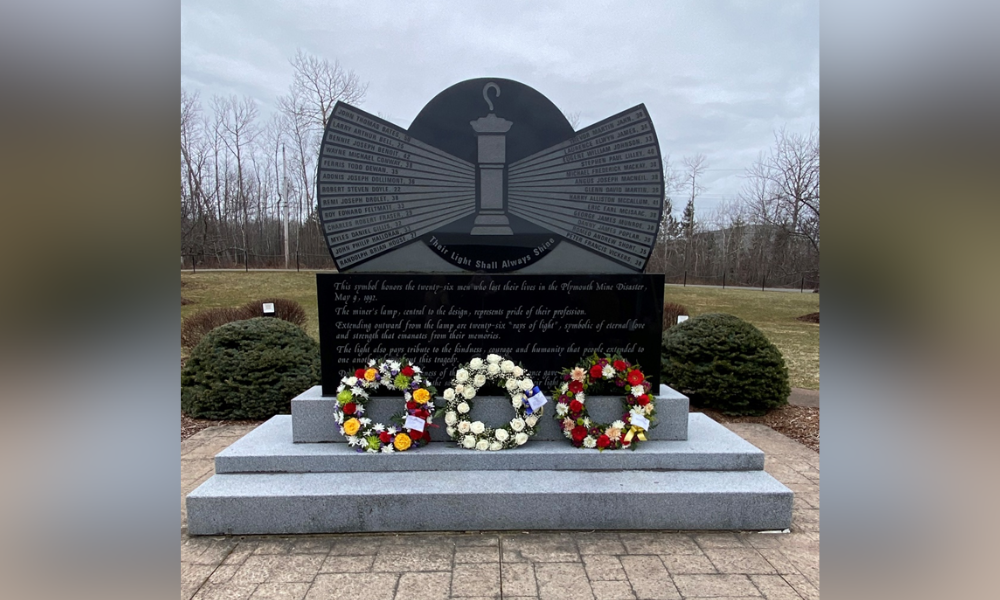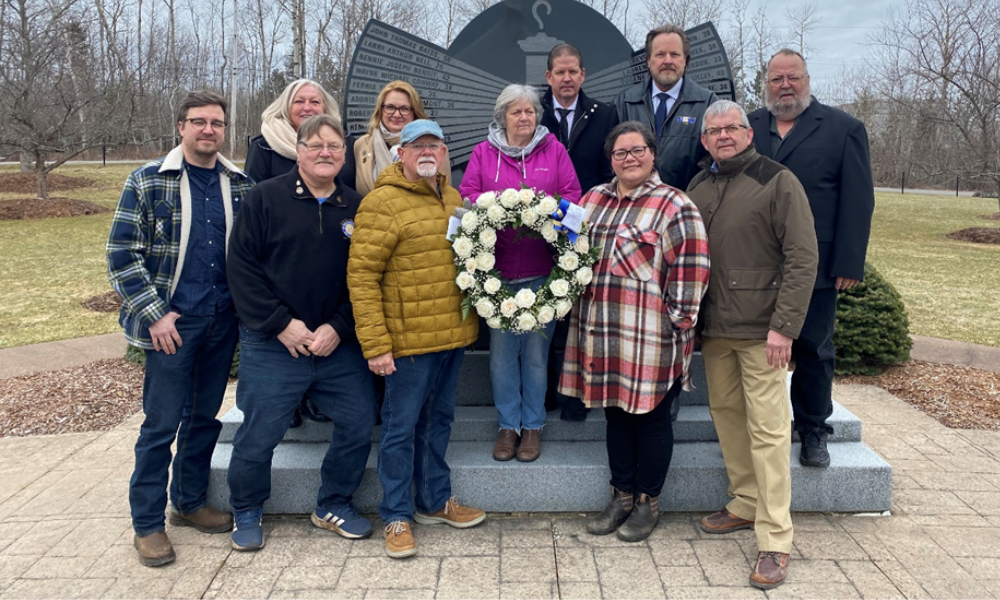Event held to mark anniversary punctuated by call for better implementation

Commemorating 20 Years of the Westray Law: Advocates Emphasize Need for Enhanced Training
Marking the 20th anniversary of the Westray Law, advocates gathered in New Glasgow, Nova Scotia, to honor the memory of the 26 miners who lost their lives in the tragic Westray Mine explosion of 1992. Among those present were members of the Westray Families Group, local and national labor organizations, and community leaders.

(Attendees at commemoration ceremony marking the 20th anniversary of the Westray Law at Their Light Shall Always Shine Westray Miners Memorial Park on Tuesday March 26th in New Glasgow, Nova Scotia)
The event, which took place at the Their Light Shall Always Shine Westray Miners Memorial Park, featured remarks, a musical performance, wreath-laying, and the reading of the names of the victims. Reverend Glen Matheson, Danny Cavanagh (President of the Nova Scotia Federation of Labour), and Bea Bruske (President of the Canadian Labour Congress) were among the speakers who paid tribute to the fallen miners and reflected on the significance of the Westray Law.
"While the law itself is good," remarked Marty Warren, national director of the United Steelworkers (USW), "the implementation or how it's used with our ministry inspectors, our police, our crown, that's where we struggle." Warren is advocating for better training for anyone involved in the investigation of a workplace incident.
Over the past 20 years in which the Westray Law has been part of the Criminal Code of Canada, Warren says its use has been extraordinarily rare. "We've had over 20,000 workers die at work, but only seven corporations and three individuals have been convicted under the Westray Law."
Warren says USW is drafted six amendments and is trying to gain support to see these changes made.
- Ensure Crown attorneys are educated, trained, and directed to apply the Westray Law amendment.
- Implement mandatory training for police and health and safety regulators to enforce the amendments.
- Allocate resources to ensure training takes place at all levels and make training mandatory, not voluntary.
- Introduce mandatory procedures and protocols in every jurisdiction for police, top prosecutors, and health and safety regulators.
- Assign dedicated prosecutors in each jurisdiction with the knowledge and ability to handle health and safety cases.
- Enhance coordination among regulators, police, and Crown attorneys to ensure safety regulators reach out to police when criminal charges may be warranted.
Sylvia Boyce, health, safety, and environment department leader for the USW national office, echoed Warren's sentiments, stressing the need for enhanced training for those responsible for investigating workplace accidents. "We're here to push for real training," says Boyce, "not voluntary, but mandatory training for police, regulators, and crown prosecutors."
Boyce emphasized the importance of treating workplace fatalities as potential crime scenes, calling for a cultural shift in how such incidents are investigated. "Just as with any other death in society," Boyce notes, "the police should secure the scene, investigate thoroughly, and consider the possibility of criminal charges."
The event concluded with a call to action, urging policymakers, regulators, and law enforcement to prioritize workplace safety and ensure that the lessons of the Westray Mine disaster are never forgotten.
As advocates continue their efforts to strengthen the enforcement of the Westray Law, the legacy of the fallen miners serves as a poignant reminder of the ongoing struggle for workplace safety.





